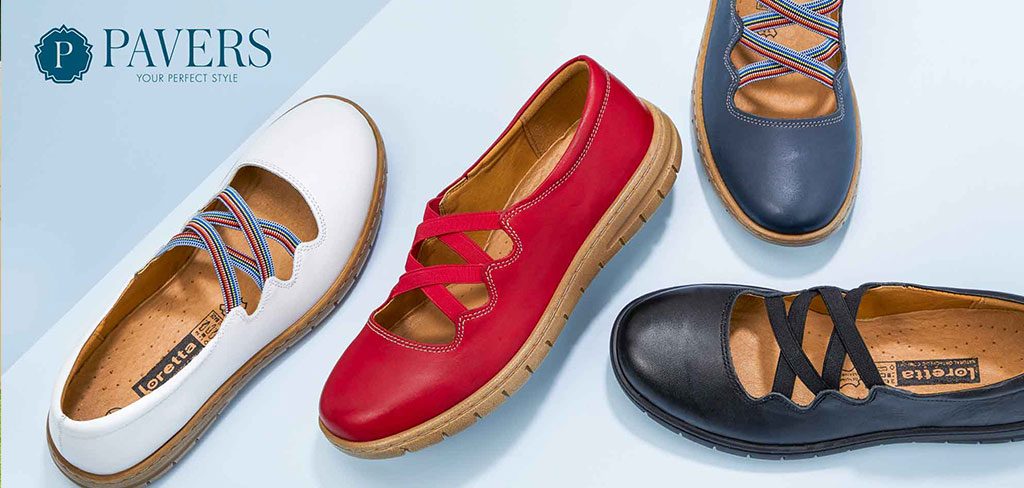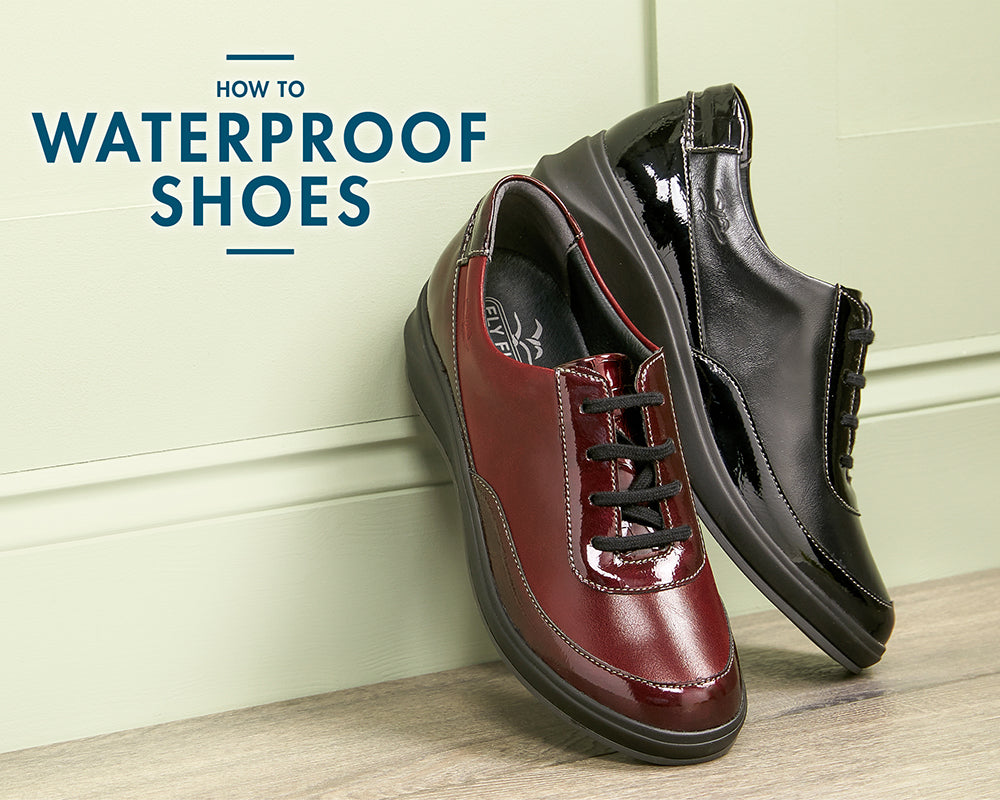Life’s not about waiting for the storm to pass… it’s about learning to dance in the rain! The Great British weather can be unpredictable at best, so when you are wanting to get out and about or back to nature, waterproof shoes are a must have for keeping you both warm and dry. Here at Pavers, we have a whole host of waterproof and water resistant shoes and boots, perfect for outdoor days. Once your feet and socks get damp it can make for an uncomfortable experience which is hard to resolve, so prevention is always better than a cure in this case!
How do waterproof shoes work?
So, how do waterproof shoes actually work? When creating waterproof shoes it is vital that they are also still breathable. Our feet sweat, even in the cooler months, so it is necessary that shoes are breathable in order to keep feet dry and comfortable. Luckily, we have over fifty years of expert industry knowledge and experience when it comes to footwear, so we know exactly what to look for in a waterproof shoe. Most shoes do this by using a dual layer technique, with the outer layer protecting feet against the elements and an inner layer which contains tiny pores which allows water vapour to pass through to the outside.
What is the difference between waterproof and water resistant?
Waterproof and water resistant have two slightly different meanings which describe the level of protection against water which the shoe will give you. Water resistant has the ability to resist water, but only to a certain point, whereas waterproof technically means that it is impermeable to water, thus offering a stronger level of protection.
How to Know if a Shoe is Waterproof
Can you instantly recognise which shoes and materials are waterproof? There are a few tell tale signs which make it easier to spot a pair of waterproof shoes. Firstly, many waterproof shoes will be labelled as such, or may even feature a waterproof logo somewhere on the shoe itself. Another sign that a pair of shoes might be waterproof is in the thickness of the lining. A good pair of waterproof shoes or boots will have a thicker lining than non waterproof shoes, feel the thickness of the material with your fingers and it should feel like there is an extra layer of cushioning. You can also look at the outsole for clues as to if the shoes are waterproof, as they will usually have a rubber outsole to protect against water.
How to Make Shoes Waterproof
If you have a pair of shoes or boots at home that you think you might like to wear in potentially wet weather, you can enhance their water resistance with a few handy shoe care products. Waterproofing sprays are a simple way to waterproof your shoes quickly. Remove any laces or additional detachable details from the shoes and apply the product per packaging instructions. You can also try waterproofing waxes and creams for your footwear, simply use like you would a leather conditioner to a water resistant coating to your shoes.
Can You Waterproof Leather Shoes?
Shoes crafted from natural leather tend to repel water naturally. However, they also deteriorate much quicker from water exposure, meaning that your shoes will not last as long. Leather is tanned animal hide, and is durable due to it’s protein rich fibres. As a natural fibre, leather, like suede, will never be completely waterproof and should always be looked after with care. Using a waterproof cream or spray is the best way to try and make your leather shoes water resistant. In addition take into consideration the soles of the shoes, a Goodyear Welted rubber sole is a great waterproof option which can be replaced by a cobbler if damaged or worn out.
What Should be in my Care Kit?
A care kit is a great way to protect and look after your shoe collection. Our cleaning kit essentials are shoe cream, horse hair brush(es), wax polish, lint free cloths, protective spray and a welt brush. This set of essentials will allow you to maintain the care of your Pavers shoes, boots and sandals with ease.
Can You Make Suede Shoes Waterproof?
Suede shoes or boots are a stylish finishing touch to any look. However, suede is not a waterproof material, and with no protection can spoil and shrink when exposed to water due to its delicate nature, meaning extra care must be taken when wanting to wear suede footwear outdoors. You can ‘waterproof’ your suede using a waterproof spray, but please note that due to the softness of suede it will never fully waterproof it, although it will make it possibly withstand a very light shower. Should you find that your suede shoes get very wet, the best way to try and salvage them is to blot out as much water as possible using a soft towel, then very gently brush them using a soft suede brush.
Can You Waterproof Running Shoes?
Although running in the cooler seasons can be more enjoyable, it also comes with one big downfall: wet feet. Like other fabrics, you can apply a protective ‘waterproofing’ spray to running trainers to help aid in the protection against water. However, this will only ever make them water resistant. For fuller protection, try a pair of waterproof trainers such as the Flex Appeal 4.0 – True Clarity trainer, which has been developed specifically for outdoor wear.















Top Sales